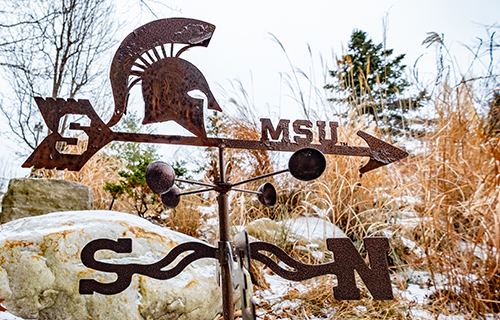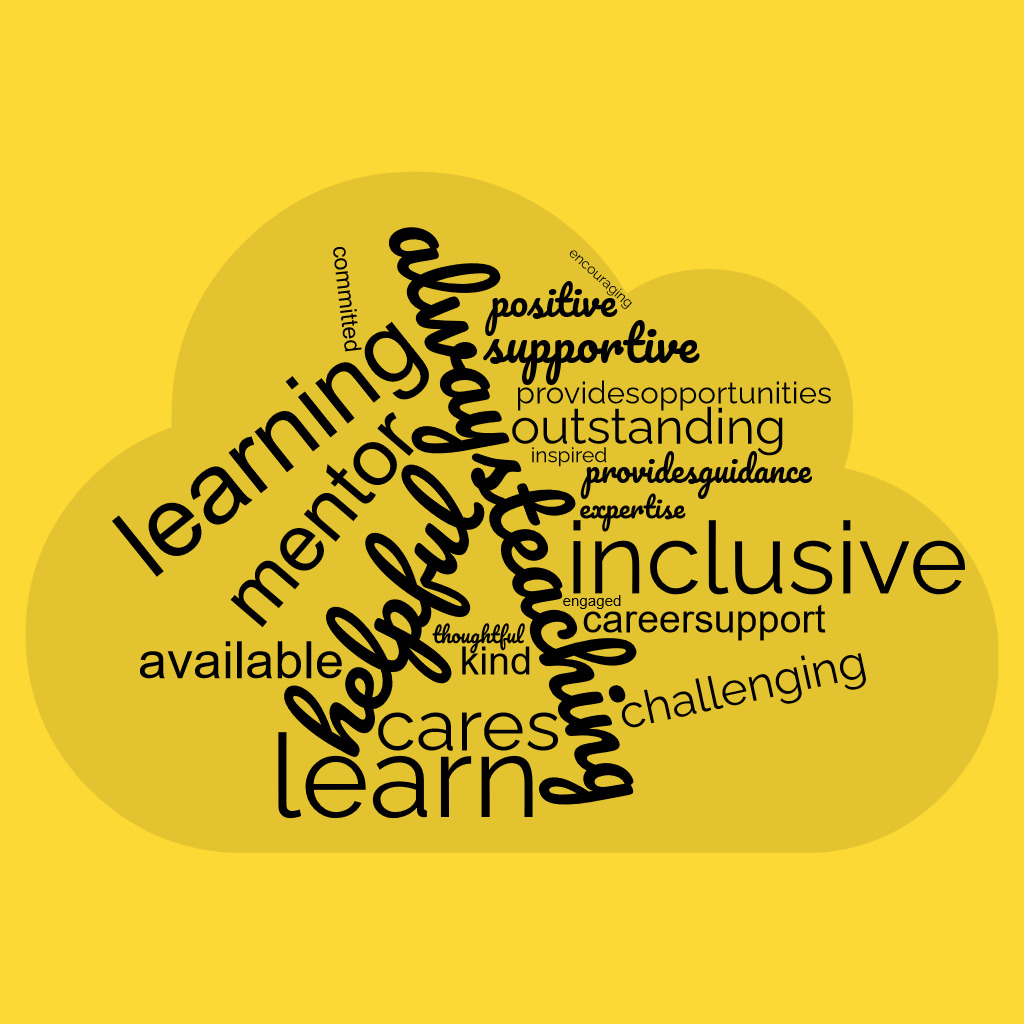
Spartan weathervane in the MSU Radiology Garden.
We have been immersed over the last several months in numerous discussions, small and large group meetings organizing and visioning into the strategic planning efforts represented in MSU 2030. Two central themes, closely connected in many ways, are student success and staff and faculty success – both involving several sub-goals that foreshadow an exciting future and many changes to how we think about academic work and measures of achievement for all.
It is hard to believe we will meet our goals of improving student success without equivalent support for effective teaching, learning, mentoring, sponsorship, and engagement with students by faculty in all ranks, roles, and statuses. While most educators may not have regular impact on the overall curriculum a student pursues, each has a role through individual courses, experiences, and advising that helps support student learning, and in return, faculty engagement and continued instructional improvement. Because learning occurs in spaces beyond the walls of any classroom and lab facility, we broaden the definitions of instruction to how we model and enact core values in all our interactions with learners, including with each other as lifelong learners. Certainly, we have experienced versions of this in the move first, to virtual instruction and then back to in-person, and in all the ways we have tried to be supportive of the many forms of health and well-being. Few of us like to endure continuous ambiguity and change, but at its core we also understand that learning by definition always involves at least some dissonance and challenge to what we think we know as we incorporate new understandings into our beliefs and actions. Whether it’s gaining expertise with higher order statistics, finding comfort in improvisation or developing new strategies for community engagement in a pandemic, feeling affirmed of our own instructional talents and helping improve student learning in its diverse settings are all part of creating a campus environment in which excellence and opportunity thrive – a hallmark of a university that truly values teaching and learning.
In trying to think a bit differently about what the campus community considers educator excellence in and out of the classroom, we reviewed the close to 700 “Thank an Educator” postings since that initiative began a scant two years ago. Representing myriad roles across the university and submitted by community members from all walks, some themes did emerge that may offer some common ways of characterizing the nature of educator as well as those that reflect broader and important ways of seeing what it means to embrace all the ways we are, together, educators.

Themes from Thank an Educator submissions include the words learning, mentor, helpful, inclusive, challenging, outstanding, cares, available
The #iteachmsu Thank an Educator initiative was launched in 2018 to help recognize the great work individual educators across roles are doing at MSU to support student success through their contributions to the outreach, teaching and learning missions of the university. How to recognize someone for their educator impact is simple. Visit the #iteachmsu Thank an Educator page and fill out the simple form to recognize an educator you know- including a short statement of gratitude. The #iteachmsu team uses the information submitted to send them a note of thanks via email! Anyone at MSU can submit a thank you- and there is no limit to the number of educators that can be thanked. To date, over 600 educators have been recognized! The word cloud included here is a visual display of the words that showed up most frequently across those 600+ gratitude stories. Do you know someone at MSU who you would describe using any or all of these words? Recognize them with Thank an Educator today!


